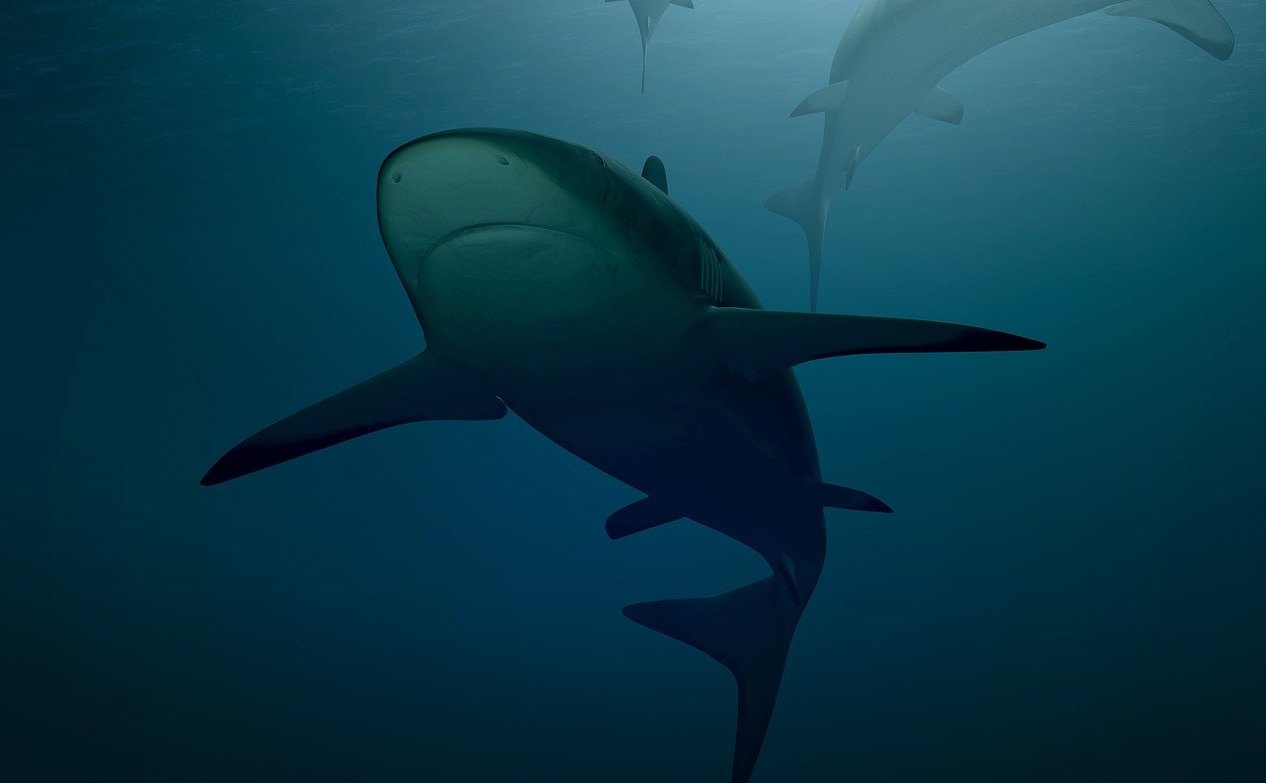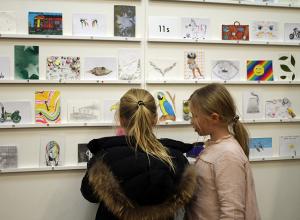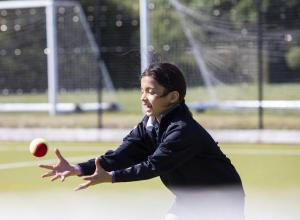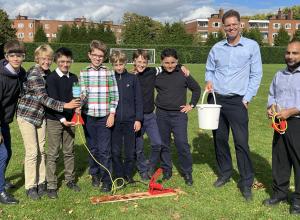
How do you use Maths to change perceptions of the world's most unfairly persecuted fish, the shark. Warren Rodricks explains how he won over the 10s.
Perhaps the thing I love most about Maths Mastery is its power to connect maths and the complex and ever-changing real world beyond the classroom walls. Thanks to it, we can use Maths to make sense of the chaos and the uncertainty of the planet. We can delve into depths and explore places that our children have never visited. In doing so we create context for the numbers and calculations. And this in turn changes the way we look at Mathematics transforming it into a far more fluid and changing entity that we imagined.
Take shark conservation for example. As a child, I loved sharks. After being forced to watch Jaws by my brother when I was probably a little too young, my terror of – and fascination with them – grew. As I grew up and my interests in other things increased my focus on sharks sat on the back burner. But it revived with a bang a few weeks ago when a WWF bulletin in my mailbox reminded me of my love for these mysterious and magnificent fish. One of the striking details in the bulletin was that
Sharks' numbers are decreasing, their habitats being exploited in the name of gratifying human desires and tastes.
As I tried to grasp what this meant, I knew I needed to do something. As my marine biology is not quite where it needs to be for me to venture out into the seas, there was only one option open: to use sharks as the focal point of a study on percentages with my 10s! And by doing so to empower my pupils in their future decisions.
These sea creatures share the plight of declining numbers with many other living organisms on our planet – though not with humans of course. Their numbers are decreasing, their habitats being exploited in the name of gratifying human desires and tastes. Our study began with a simple question: is 15 per cent a large number? Once upon a time, pupils might have been expected to give a direct and simple answer. But in a world that is neither direct or simple, answers need to evolve. I’m proud to say none of my pupils took the bait, so to speak. Instead, impressively my 10s were able to reason that the value of 15 per cent depends on context. The ability to reason what numbers and concepts mean in a particular context is a huge part of mastery. If the Mathematics our students learn is to mean something, then it needs to be applied to the world beyond our classroom walls. If we can expand our horizons to important dilemmas, then all the better.
Sharks killed nine people in 2020, while humans killed 100 million sharks over the same amount of time.
My pupils argued that they could not determine the value of 15 per cent unless they had more relevant detail about that figure. Excellent. So, here it is. The 15 per cent actually represents the number of fatal shark attacks in 2020. Still, not enough information, they protested. They needed the total number of attacks. This is estimated at 60. Now, part of the Year 6 curriculum requires pupils to be able to find the percent of a whole number. Thus they were looking at 15 per cent of 60 – roughly nine fatalities a year. Any fatality is tragic of course, yet in the context of a worldwide population of 7 billion, nine fatalities gave our numbers some relative significance. As did the fact that accidents caused by vending machines, taking selfies, falling out of bed and even injuries caused by champagne corks, all kill more people than sharks do in a given year. Still not convinced context matters? Though sharks killed nine people in 2020, humans killed 100 million sharks over the same amount of time. We do so every year. The reason? Shark finning (with a focus on shark fin soup) is an industry worth between half a billion to one billion pounds per annum.
Every added detail changed our context ever so slightly and as more information was added, the complexity of the problems associated with the new information forced the class to reconsider their thinking. By the end, our discussions were filled with outrage that the 15 per cent of shark attacks that resulted in nine deaths per year paled into significance by comparison to a 70% decline in global shark numbers since 1970.
This is the power and the beauty of mastery. In this case, it allowed us to use the simple calculations required by the curriculum and apply them to a much more meaningful and important context: shark conservation.
Sometimes the discoveries we make about mathematical patterns - in this case revealing the wanton damage we cause to a precious ecosystem – may even lead us to change our minds and to take action.
Engagement on the pupils’ part was considerable from our first lesson and it deepened as we went along, culminating in the last session with the topic’s most important question: what can we do about this? For me, we study maths both to equip us practically for life and so we can make sense of the patterns that surround us. Sometimes the discoveries we make about these mathematical patterns - in this case revealing the wanton damage we cause to a precious ecosystem – may even lead us to change our minds and to take action.
Our world is becoming more complex as the Covid epidemic has served to emphasise. And many other challenges remain. Racism, sexism and classism continue to remain as outmoded and unjust ways of ‘ranking’ and dividing us. For our students the more they learn about the numerical patterns found in these methods of discrimination the more they will be able to change the world for the better. We plan to study each of these topics at some level with our Lower Prep students before the year ends. As with our sharks project, our hope is that our pupils will find themselves considering questions that all of us need to answer if our civilization is to truly progress in the future.
I became a teacher because I wanted to help change the world into a better place. And even though I now teach maths, this has not changed. However, it is in the mastery of such concepts in a significant context that our students, who will be our leaders of tomorrow, will change destinies, both those of the natural world and their own.
Warren Rodricks welcomes feedback to this blog at website@harrodian.com







